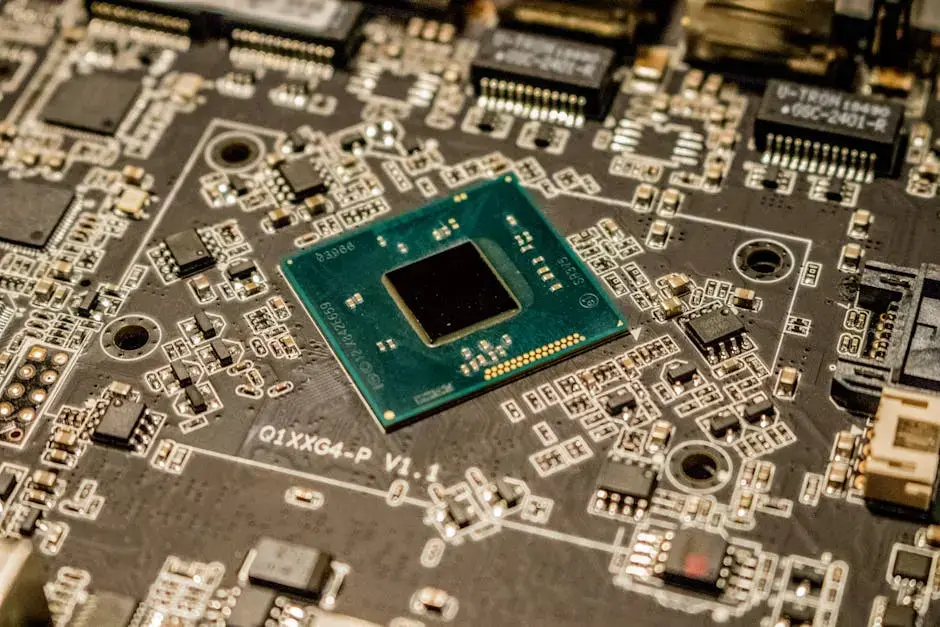How Motion Control Solutions are Enhancing the Automotive Manufacturing Process
- AAAPlus Automation
- Jul 17, 2024
- 4 min read
In the dynamic world of automotive manufacturing, the synergy between innovation and precision has never been more critical. Motion control solutions stand at the forefront of this evolution, revolutionizing production processes to achieve unparalleled efficiency and accuracy. Explore how motion control technologies are reshaping the automotive industry's landscape, optimizing workflows, and setting new standards for quality.

The Evolution of Automotive Manufacturing
The automotive manufacturing sector has witnessed a remarkable transformation over the years, marked by a shift towards automation, digitalization, and smart technologies. This evolution has been fueled by the relentless pursuit of efficiency, cost-effectiveness, and quality in the production process. Motion control solutions have emerged as a driving force behind this evolution, empowering manufacturers to streamline operations, reduce downtime, and enhance overall productivity.
From the early days of manual assembly lines to the sophisticated robotic systems and advanced analytics used today, the automotive industry has come a long way in embracing technological advancements. Motion control technologies have played a crucial role in this journey, offering precise control over critical processes such as material handling, welding, and assembly. By integrating motion control systems, manufacturers can achieve levels of accuracy and repeatability that were once unimaginable.
Furthermore, the growing emphasis on sustainability and energy efficiency in automotive manufacturing has spurred the adoption of eco-friendly motion control solutions. Electric actuators, servo motors, and drive systems optimized for minimal energy consumption are now becoming the norm, aligning with the industry's commitment to reducing environmental impact and resource utilization.
In essence, the evolution of automotive manufacturing is intricately intertwined with the advancements in motion control technology. As manufacturers strive to meet the demands of a rapidly changing market, the integration of smart, adaptive motion control solutions will continue to be a cornerstone of innovation and progress in the industry.
Understanding Motion Control Technology
At the core of motion control technology lies the ability to precisely regulate the movement of mechanical components within manufacturing systems. By harnessing a combination of sensors, actuators, and control systems, motion control solutions enable seamless coordination and synchronization of various production tasks. Whether it involves positioning, speed control, or torque management, motion control systems offer unparalleled accuracy and reliability in executing complex manufacturing operations.
The differentiation of motion control technology lies in its adaptability and scalability to suit diverse manufacturing requirements. Whether in automotive assembly lines, painting facilities, or quality inspection stations, motion control systems can be tailored to meet specific process needs, ensuring optimal performance and minimal downtime. With the integration of intelligent algorithms and predictive maintenance capabilities, motion control solutions pave the way for proactive and data-driven decision-making in manufacturing environments.
Moreover, the convergence of motion control technology with the Internet of Things (IoT) and artificial intelligence heralds a new era of connected and autonomous manufacturing systems. Real-time data insights, remote monitoring, and adaptive control mechanisms empower automotive manufacturers to enhance operational agility, preempt maintenance issues, and deliver products of superior quality. As the industry embraces digitalization and smart manufacturing concepts, motion control technology remains a linchpin in driving transformative change and operational excellence.
Enhancing Efficiency and Precision in Production Lines
Efficiency and precision are the cornerstones of successful automotive production lines, where even minor deviations can result in significant quality issues and wastage. Motion control solutions play a pivotal role in optimizing production processes by ensuring consistent, repeatable performance across all stages of manufacturing. By employing closed-loop feedback systems, predictive analytics, and adaptive control algorithms, manufacturers can minimize errors, improve cycle times, and elevate product quality to meet stringent industry standards.
One of the key advantages of motion control technology is its capacity to orchestrate multi-axis motion with unparalleled accuracy and synchronization. In complex automotive assembly operations that involve intricate part positioning and alignment, motion control systems offer the precision required to achieve seamless integration and flawless execution. This precision not only enhances operational efficiency but also reduces rework, enhances safety, and optimizes resource utilization in manufacturing facilities.
Furthermore, motion control solutions contribute to enhancing the flexibility and adaptability of automotive production lines, enabling rapid reconfiguration and customization to accommodate varying production requirements. By deploying agile motion control systems that can adjust parameters on-the-fly and seamlessly switch between different manufacturing processes, automotive manufacturers can respond swiftly to market demands, reduce changeover times, and maximize production output without compromising on quality.
Optimizing Workflow with Advanced Control Solutions
The integration of advanced control solutions in automotive manufacturing is poised to revolutionize workflow optimization and operational efficiency. Motion control technologies, coupled with sophisticated automation algorithms and real-time monitoring capabilities, empower manufacturers to achieve unprecedented levels of productivity and agility in their production processes. By implementing intelligent motion control systems that can adapt to changing production dynamics and anticipated demand fluctuations, automotive manufacturers can streamline workflows, eliminate bottlenecks, and enhance overall operational performance.
Moreover, the seamless integration of motion control solutions with Industry 4.0 principles drives the convergence of physical and digital manufacturing realms, creating interconnected systems that are responsive, predictive, and highly efficient. With the advent of smart factories and cyber-physical systems, automotive manufacturers can leverage motion control technologies to optimize resource allocation, enhance asset utilization, and orchestrate complex production sequences with unparalleled precision and speed.
In essence, advanced control solutions empowered by motion control technology offer automotive manufacturers a strategic advantage in navigating the complexities of modern production environments. By embracing digital transformation, data-driven decision-making, and intelligent automation, manufacturers can unlock new opportunities for growth, innovation, and sustainable development in the ever-evolving automotive industry landscape.
Embracing Future Innovations
As automotive manufacturing continues to advance, the integration of motion control solutions will be pivotal in driving progress and elevating standards across the industry. By embracing these cutting-edge technologies, manufacturers can not only enhance operational efficiency and product quality but also stay ahead of the curve in an ever-evolving market.







Comments